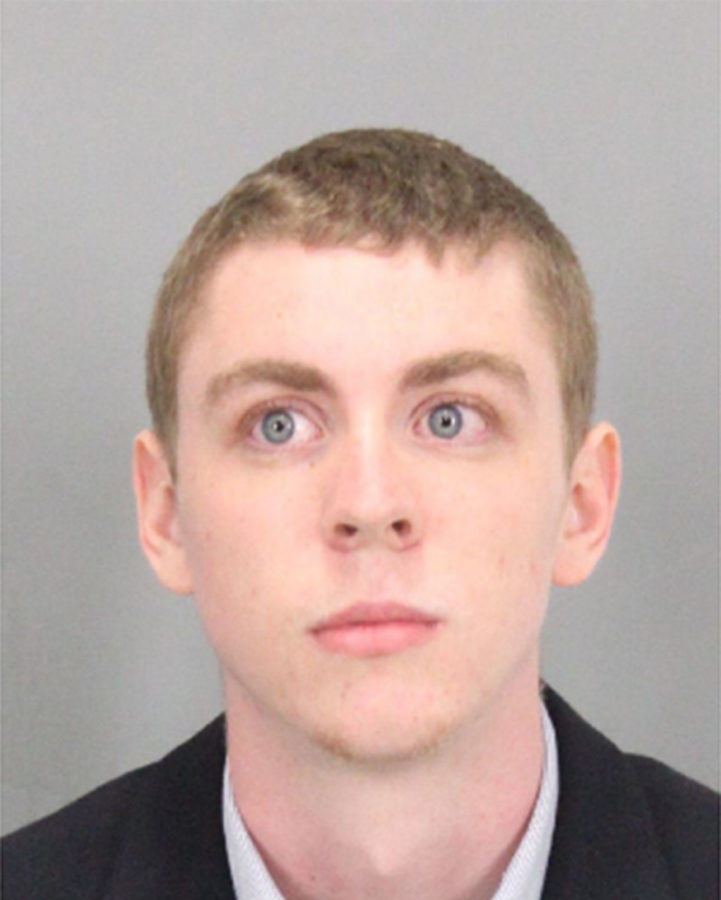Ex-Stanford swimmer to be released after serving half of 6-month sentence in sex assault case
Brock Turner was convicted of sexually assaulting an unconscious woman on Stanford’s campus in 2015.
August 30, 2016
Former Stanford University student Brock Turner, who was convicted of sexually assaulting a woman and sentenced to six months in jail — a penalty criticized for its leniency — is scheduled to be released from jail Friday, according to public records.
If released this week from the Santa Clara County jail, Turner will have completed half the jail term imposed by Superior Court Judge Aaron Persky, who faces a recall campaign over his handling of Turner’s case.
Advertisement
Early releases are commonly given because of good behavior and because of California’s prison realignment. In 2014, the Los Angeles Times reported more than 13,500 inmates were being released early each month to relieve crowding in local jails.
Turner was convicted in March of three felony counts: assault with the intent to commit rape of an unconscious person, sexual penetration of an unconscious person and sexual penetration of an intoxicated person. Turner attacked an unconscious woman behind a garbage bin on the Palo Alto university’s campus in January 2015.
At his sentencing, the Ohio native faced up to 14 years in prison. Prosecutors sought a six-year prison term. Persky opted for the lighter jail term and also sentenced Turner to three years’ probation. At the time, he said a lengthier penalty would have a “severe impact” on Turner.
Public criticism of the sentence escalated after the unidentified victim’s 12-page, single-spaced letter that she read aloud in court went viral after it was published by the media. She excoriated the judge for giving Turner “a soft time-out, a mockery of the [seriousness] of the assaults.”
More: Some Stanford graduates protest during commencement ceremony
“The seriousness of rape has to be communicated clearly, we should not create a culture that suggests we learn that rape is wrong through trial and error,” she wrote. “The consequences of sexual assault needs to be severe enough that people feel enough fear to exercise good judgment even if they are drunk, severe enough to be preventative.”
Persky, who was appointed to the bench by then-California Gov. Gray Davis in 2003, voluntarily moved to civil court, officials announced last week. The judge had recently recused himself from a case in which he was set to decide whether to reduce the conviction of a plumber for possession of child pornography from a felony to a misdemeanor.
Advertisement*
More: Judge in Stanford sex trial to no longer hear criminal cases
___
(c)2016 Los Angeles Times
Visit the Los Angeles Times at www.latimes.com
Distributed by Tribune Content Agency, LLC.
Advertisement








